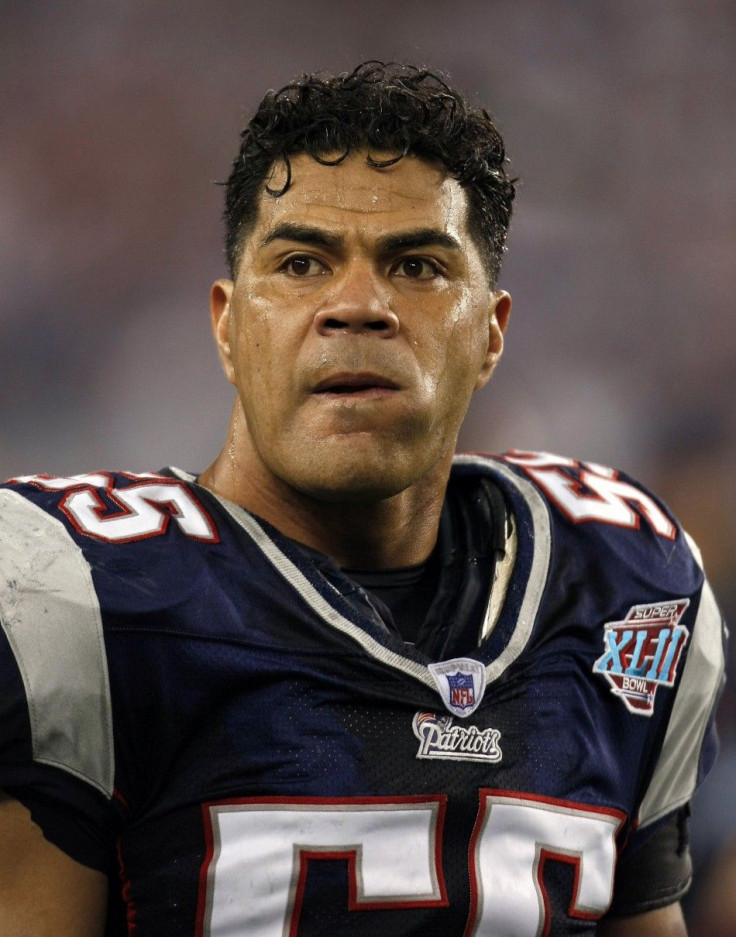Junior Seau: Samoan-American
ANALYSIS

Junior Seau, the former NFL superstar who died tragically at the age of 43 on Wednesday, reportedly by committing suicide, was a member of one of most low-profile, invisible and under-reported ethnic groups in the country: Samoan-Americans.
Samoan-Americans are generally classified under the wider umbrella of “Pacific Islanders” -- Samoans are the second largest segment of this group, behind Native Hawaiians.
According to reports, there are about 200,000 Samoan-Americans living in the U.S., with the largest concentrations in Hawaii, Alaska, Washington state, Utah and Southern California, particularly the cities of Long Beach, Carson and Oceanside.
Indeed, about one-third of all Samoan-Americans reside in California (where Seau himself was born and raised).
Samoans originate from either America Samoa, an unincorporated territory of the U.S., or Samoa, an independent country that gained its independence from New Zealand in 1962.
The Samoan Islands are an archipelago in the central South Pacific Ocean, about 4,800 miles from the California coast.
The U.S. claimed Eastern Samoa as its possession in 1900.
Samoans have been able to obtain U.S. residency quite easily since the end of the Second World War. When the U.S. Navy shut down its base in Pago Pago in Samoa, about 1,000 Samoans were invited to work for the military in Hawaii.
However, Samoan-Americans, who initially arrived in the U.S. as factory workers or agricultural laborers, have endured poverty, discrimination, poor educational achievements, health problems, as well as involvement in criminal gangs.
Seau himself was quite familiar with gang-related violence -- a cousin of his died in a shooting, prompting Seau to enroll at the University of Southern California in 1987 to escape the street violence that enveloped the Samoan community.
In a 2000 article in the Los Angeles Times, a Samoan-American high school student told the paper: A lot of people think we're just big dumb guys who aren't that smart and only know how to play sports and be in gangs. But to be Samoan means being strong. And being intelligent. And it means celebrating your culture and your family and church.
Indeed, Samoan culture stretches back more than 4,000 years.
This is a culture that is very committed to the preservation of their language and traditions at all costs, said Robert Franco, an anthropologist at Kapi'Olani Community College in Honolulu, according to the LA Times.
There's tremendous struggles in that adaptation.
With respect to Seau, one of the bizarre aspects of the Samoan-American community is the proliferation of Samoans who play in the National Football League. Aside from Seau, there have been about 30 NFL players sharing his ancestry, including Troy Polamalu, a star with the Pittsburgh Steelers.
This means that, given the tiny number of Samoan-Americans, this ethnic group has a dramatically greater chance of reaching the NFL than any other segment of the population. (In contrast, the largest Asian population in the U.S., Chinese-Americans, who number nearly 4-million, have produced only one NFL player, Ed Wang of the Oakland Raiders, of full-blooded Chinese descent).
Seau was not only the most famous Samoan football player (and arguably the greatest San Diego Charger ever), but also the most well known Samoan in the world.
Following Seau's death, a young Samoan-American named Fale Poumele who plays football at San Diego State University told local media: “Junior meant everything to the Samoan community. He was the heart and soul. Everyone looked up to him. He was our hero.”
© Copyright IBTimes 2024. All rights reserved.











